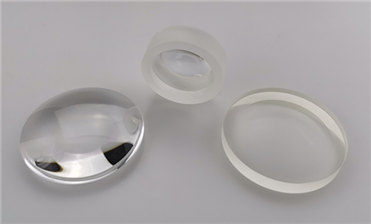How to Determine the Pros And Cons of Optical Lenses?
As a Dome Lens Manufacturer, let me share with you. The raw materials for the production of optical glass are some oxides, hydroxides, nitrates and carbonates, and phosphates or fluorides are introduced according to the requirements of the formulation. In order to ensure the transparency of glass, the content of colored impurities, such as iron, chromium, copper, manganese, cobalt, and nickel, must be strictly controlled. When ingredients are required, accurate weighing and uniform mixing are required.
Fused Silica Windows
The main production process is smelting, forming, annealing and inspection. Then the specific steps are as follows:
1. There are single crucible batch smelting method and continuous smelting method in tank kiln for smelting. Single crucible smelting method can be divided into clay crucible smelting method and platinum crucible smelting method. No matter what kind of smelting method is used, it needs to be stirred with a stirrer, and the temperature and stirring are strictly controlled to make the glass liquid reach a high degree of uniformity. The clay laser focusing mirror crucible can melt most of the crown glass and flint glass, with low cost, and is used when the melting temperature of the glass exceeds the service temperature of platinum. The platinum crucible can smelt high-quality glass that has a serious corrosive effect on the clay crucible, such as heavy crown, heavy barium flint, rare earth glass and fluorophosphorous glass. Platinum crucibles are heated by electricity, generally silicon-carbon rods or silicon-molybdenum rod electric furnaces are used. However, high-frequency heating can be used to manufacture glass that has a high tendency to crystallize, requires rapid cooling, and has certain requirements on the atmosphere.
2. The molding methods for forming optical glass include classical crushing method, rolling method and pouring method. However, leakage molding is more and more widely used at present, which can directly draw rods or drop materials to form large-size blanks. , Improve the utilization rate and yield rate of the laser protective mirrors of Liudi Li.
3. Annealing In order to eliminate the internal stress of the glass to the greatest extent and improve the optical uniformity, a strict annealing system must be formulated for precision annealing.
4. The inspection and measurement indicators include: optical constants, optical uniformity, stress birefringence, streaks, bubbles, etc.
The glass that can change the direction of light propagation and can change the relative spectral distribution of ultraviolet, visible or infrared light is called optical glass. It is an inorganic glassy material that transmits light through refraction, reflection, and transmission, or changes the intensity or spectral distribution of light through absorption. It has stable optical properties and high optical uniformity. Optical uniformity refers to the inconsistency of the refractive index of each point in the same piece of glass, which is caused by the unevenness of the laser collimator at various temperatures in the annealing furnace. When light passes through a piece of glass with uneven refractive index, it will cause irregular changes in the optical path of each part, thus affecting the imaging quality of the optical system.
Our company also has Fused Silica Windows on sale, welcome to contact us.

评论
发表评论